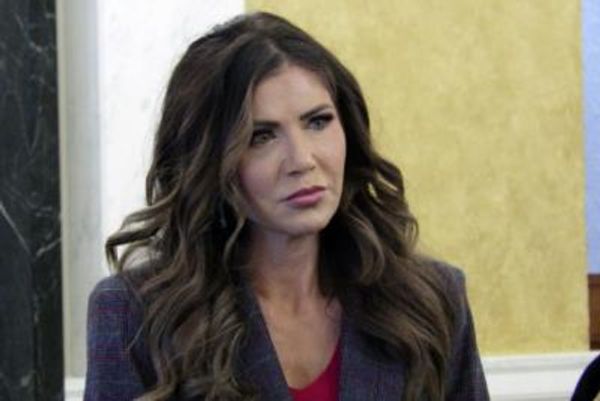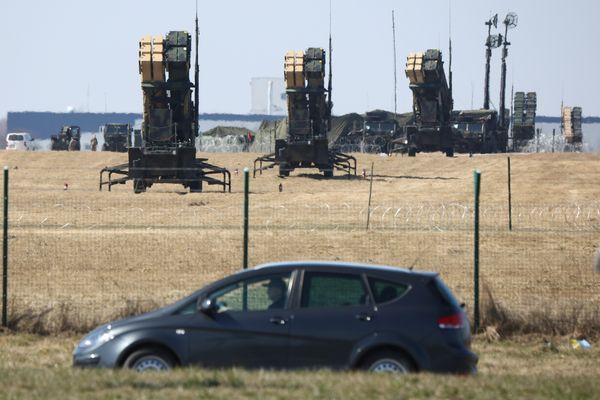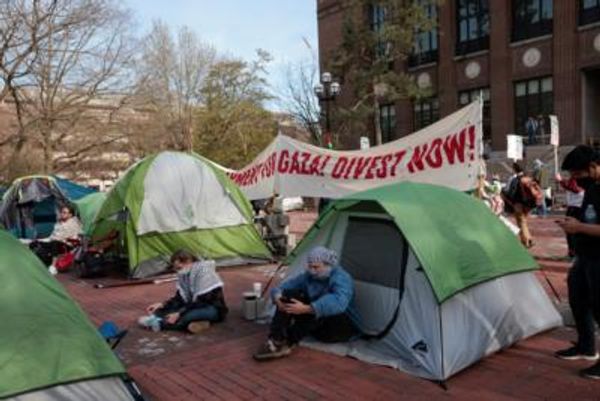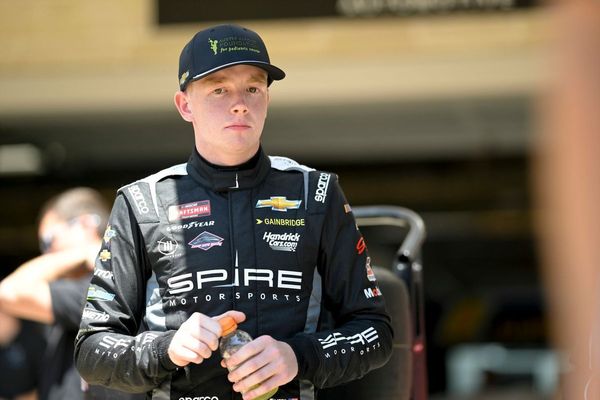
The Presbyterian Church of Australia’s decision last week to ban Acknowledgements of Country and Welcomes to Country at church services followed an internal report that failed to properly consult relevant Aboriginal Christian Leaders and took others out of context, according to critics inside and outside the church.
The church committee’s four-year inquiry into the use of Acknowledgements of and Welcomes to Country in a Presbyterian context was tasked with consulting an internal missionary organisation and a specific pair of Indigenous ministry workers.
A Crikey investigation has revealed that the organisation — the Australian Presbyterian World Mission (APWM) — was not consulted. The committee’s final report also did not include input from the two Indigenous ministers that it was required to consult with. According to a church insider, both ministers were said to be in favour of conducting Acknowledgements of and Welcomes to Country.
Instead the committee, which was comprised entirely of non-Indigenous men, consulted people such as David Price, the father of Country Liberal Party Senator Jacinta Nampijinpa Price. David Price is neither Indigenous nor Presbyterian, and told Crikey he was confused as to why his comments were included in the report.
The convenor of the committee, Peter Barnes, summarised the report on AP — the national journal of the Presbyterian Church of Australia — claiming Welcome to Country ceremonies had “turned into a money-earner, with hundreds, indeed thousands, of dollars being charged to perform a Welcome”.
In the report, Barnes also quotes a 2018 lecture of Wakka Wakka woman Brooke Prentis, an Aboriginal Christian Leader who is a former CEO of Christian organisation Common Grace and works across denominations, writing:
She has the laudable aim of wanting to bring Aborigines and non-Aborigines together, but writes that in the Indigenous worldview ‘there is no separation between human and non-human’, and ‘time is not linear but cyclical in nature’. She refers to ‘this sacred land’ in a way that ought to be disturbing to the Christian.
Prentis told Crikey she was never contacted by Barnes and that she was disappointed by his framing of her words from the lecture.
“It’s sad they didn’t use any of the positive things I said,” Prentis said. “I was saddened by the process they’ve taken. [They could have had] a yarn with me, so that we could have sat down together and I could have actually explained what Acknowledgement of Country is and how I reconcile it with Christianity.”
She also took offence at Barnes’ paraphrasing of her words to add the word “Aborigines” instead of “Aboriginal peoples”. “Aborigine is an outdated term that today is usually used in a racist context,” she said.
The Presbyterian Church announced its decision to ban Acknowledgements of and Welcomes to Country following the church’s 2023 general assembly on September 4-7, during which the committee’s report was delivered and a “heated debate” took place.
The committee, originally formed in 2019, was required to “liaise” with the APWM — which describes its mission as “facilitating the spread of the gospel to people overseas and Aborigines within Australia”. However, an APWM convenor told the assembly this consultation never took place.
The committee was also tasked with consulting two Presbyterian Indigenous ministers. However, Nathan Campbell, an ordained Presbyterian minister who was a commissioner at the assembly, explained to Crikey that Barnes told those attending that the committee had heard from the Indigenous workers “too late” to include their views. This was confirmed by Christian journalist John Sandeman, who was also present.
Campbell said the Indigenous workers weren’t given ample time to contribute to the report: “I was told personally that the committee had reached the pair of Indigenous workers and given them one week to respond but this was while they were on holidays.”
“The committee had four years to actively listen to the Aboriginal Christian Leaders employed by our denomination as instructed and their voices are absent in the report.”
Church spokesperson John McClean told Crikey, “The workers were not quoted in the report but were consulted. At the time Dr Barnes assumed that consultation with the workers was also consultation with the mission organisation. Several Aboriginal Christians were very indifferent to or opposed to the Welcome to Country or Acknowledgement of Country practices, others were in favour.”
Crikey understands that during the assembly, Campbell proposed an amendment to the motion rejecting the use of Acknowledgements of and Welcomes to Country in churches that urged recognising “the history of our nation” through a prayerful lament.
However, this proposal was outvoted by a counter-motion by minister Guido Kettniss, who referenced Bess Price, an Indigenous former Northern Territory Country Liberal Party MLC and the mother of Jacinta Nampijinpa Price and wife of David Price. The counter-motion encouraged churches to:
Be thankful for missionaries, sad about the past, and the need for continuing the evangelisation of Aborigines and to express Christ’s love in equipping Aborigines to climb out of what Bess Price calls ‘the old ways of Aborigines — violence to women, children, addiction, family feuding etc’.
Kettniss told Crikey his motion was successful in opposing Campbell’s, “which would have achieved the very opposite of what the presenters of the discussion paper were aiming out [sic]”. The wording of Kettniss’ motion was later struck from the assembly record.
Among those Barnes cites in the committee’s report is David Price. Barnes wrote that David had told him “the word ‘elder’ is much overused and never defined”.
“I know of many who have been called that by an ignorant media who are in fact violent rapists and con men. I know some personally. Some, who have been ‘respected elders’ have recently been convicted of sexual abuse of children in their own communities. There are those I do indeed respect but you will never see them on camera in front of a microphone,” Barnes went on.
Barnes’ ambiguous use of quotation marks makes it difficult to determine which parts of the above were direct quotes from David Price, but the entire paragraph is referenced as a November 13, 2020 email from David Price to Barnes.
Speaking to Crikey, David Price said, “I don’t remember writing the email and I can’t recall if I’ve met Barnes, [but] I stand by whatever I wrote … if my name is on it, fair enough”.
David Price clarified that neither he nor his wife or daughter are Presbyterian and said he did not belong to any organised religion.
The committee report details several perspectives of Aboriginal Christians who opposed the use of Acknowledgements of and Welcomes to Country in church settings. One person identified as an Aboriginal Christian told Barnes he questioned the need for Welcomes to Country as “reconciliation is only through Jesus Christ”.
Another Aboriginal Christian quoted claimed “the Aboriginal ceremonies are not harmless acts, but rituals designed to send the dead spirit back home to his or her country”.
However, Campbell said the committee failed to speak to any Aboriginal Christians inside the Presbyterian Church, instead citing external views that were against the use of Acknowledgements of and Welcomes to Country.
“I was dismayed by the report,” Campbell said. “It failed to grapple with our position as an institution trying to reach an increasingly multicultural Australia with the good news of Jesus. I was also angry at the apparent lack of consultation with the people that our denomination appointed as, basically, experts, as cross-cultural workers who happened to be Aboriginal Christian Leaders.”
The ban on Acknowledgements of and Welcomes to Country seemed like “a sort of grandstanding or virtue signalling, or dog-whistle political game being played for the religious and political right”, Campbell said, and that such Aboriginal ceremonies during church services weren’t even very common to begin with.
Summarising the committee report, Barnes wrote in AP: “An ongoing and repetitive emphasis on the need for reconciliation may well militate against the gospel. Aboriginal Christians see this.”
In another part of the blog post, Barnes wrote that “the coming of the Europeans brought mixed blessings to the Aborigines, but the blessings of Christianity, medicine, and education were substantial indeed”.
“Admittedly, along with medicine came the spread of disease, and terrible Aboriginal depopulation. Yet without the work of the missionaries, the Aboriginal people would have remained in spiritual and moral bondage. All things are loaded with ambiguities; there are many reasons to give thanks and many reasons to lament.”
Brooke Prentis said that while she was saddened by the decision and the failure to reach out to her, she would still be open to sitting down with the Presbyterian assembly to talk.
“When you don’t actually talk to us and build a relationship, you end up with a certain outcome, which is sad, because after 250 years of injustice and disadvantage to Aboriginal people, our response is to extend our hand in friendship,” she said.
“For me, my approach to the Australian churches has been to bring people on a journey, sharing a message of reconciliation as friendship. I would have loved for them to have taken that hand of friendship. Even though I’m saddened by their process and their ultimate decision, that hand is still extended to them.”
Both the Indigenous ministry workers and the APWM declined Crikey’s requests for comment.







